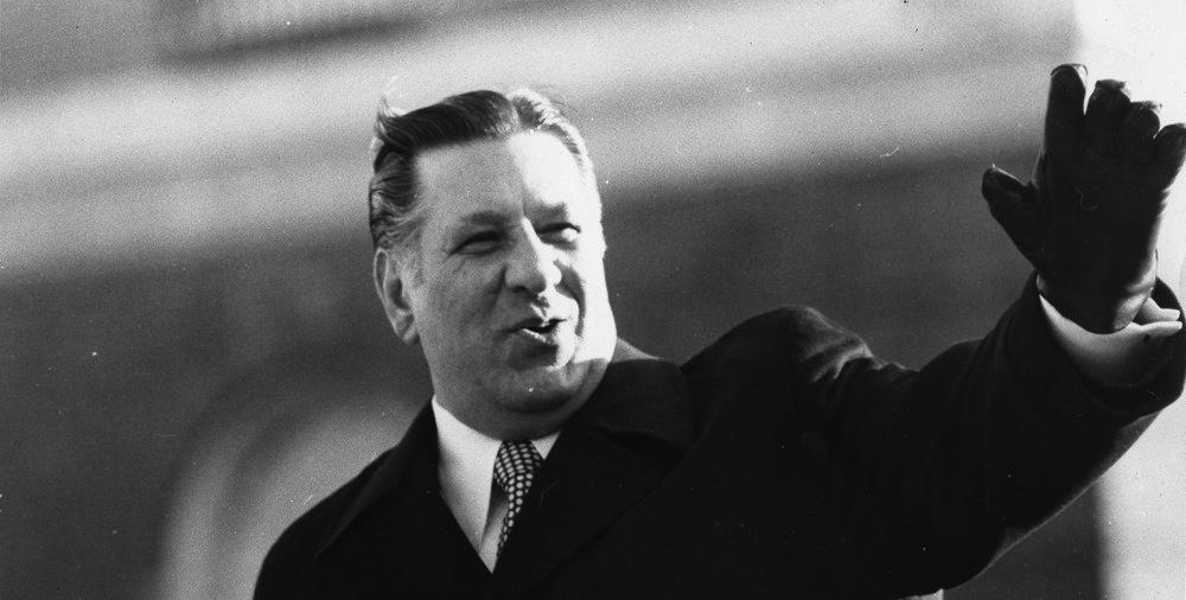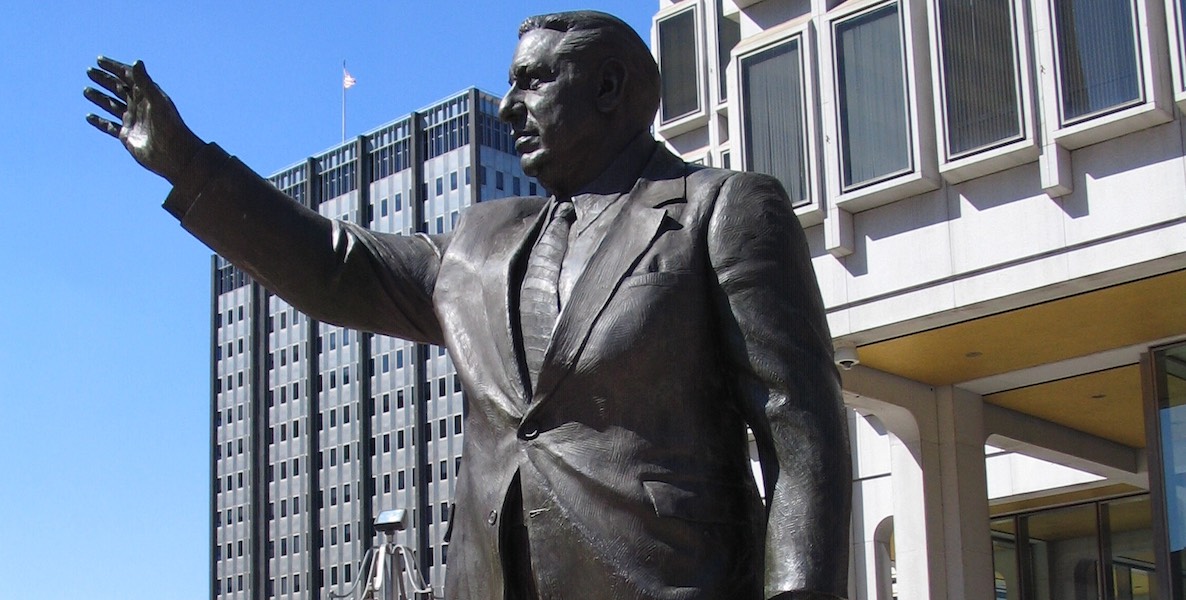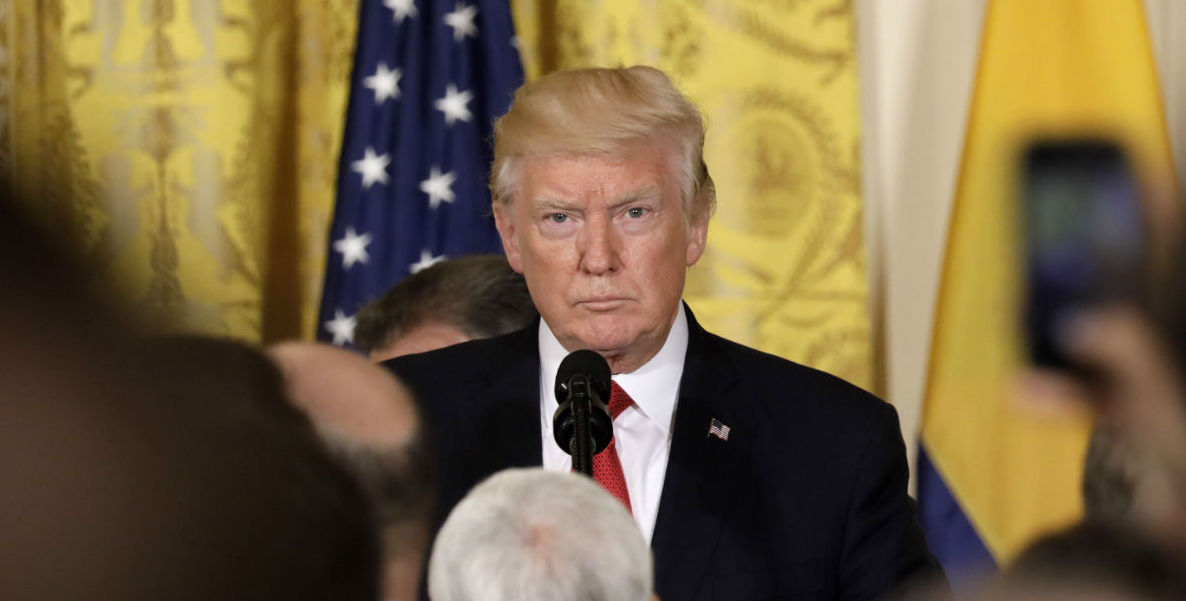During last year’s presidential campaign, there were perhaps two things Donald Trump would say that got me nodding in agreement. One was about rebuilding our infrastructure; yet here it is, more than six months in, and we’re no closer to a transformative infrastructure bill than we were on inauguration day. Congressman Brendan Boyle has told Trump’s budget director Mick Mulvaney that, if Team Trump is looking for a Democrat to work with on rebuilding America, he’s in. “Radio silence” is what Boyle has heard in return.
Be Part of the Solution
Become a Citizen member.The other was Trump’s criticism of his predecessor and his opponent for their refusal to utter the phrase “radical Islamic terrorism”; they preferred the euphemistic “violent extremism.” “Now, to solve a problem, you have to be able to state what the problem is, or at least say the name,” candidate Trump said.
The Obama administration had a tortured rationale for the semantic whitewashing, but, ultimately, Trump was right: There should be no parsing of words, no sugarcoating, when it comes to describing and denouncing terror. In other words, there’s no moral equivalency.
That’s what Trump’s pal Rudy Giuliani rightly said back in 2001, a month after 9/11. He’d given a tour of the still-smoldering 9/11 site to a Saudi prince, who promptly handed the then-New York City mayor a check for $10 million to help pay for the relief effort. But then Giuliani heard that the Prince had said, “At times like this one we must address some of the issues that led to such a criminal attack. I believe the government of the US should re-examine its policies in the Middle East and adopt a more balanced stance toward the Palestinian cause.”
Giuliani promptly ripped up the check. “There is no moral equivalent for this attack,” he said. “The people who did it lost any right to ask for justification when they slaughtered 5,000 to 6,000 innocent people. Not only are those statements wrong, they’re part of the problem.”
I know, I know. It’s a sign of how low we’ve sunk that I’m pining for Rudy Giuliani. But on this matter, it seems self-evident: Maybe, had Giuliani been in the President’s ear last weekend, Trump today wouldn’t be our Equivocator-in-Chief. It turns out our country’s blustery, tough-talking CEO is actually a weak-willed moral relativist who makes this guy look like Clint Eastwood:
https://www.youtube.com/watch?v=fCrABvZy8uc
But I doubt even Giuliani could have toughened up the little boy in the Oval Office. Let’s count Trump’s moral equivalencies. Who can forget his “you think our country’s so innocent?” justification of the barbarism of his soul mate, Vladimir Putin. Or about how this golden oldie: After the Access Hollywood tape surfaced of Trump boasting about assaulting women, he said: “Bill Clinton has said far worse to me on the golf course.”
![]()
Now comes Trump conflating the moral culpability of Neo-Nazis with those who take to the streets to oppose them. But he actually has gone even further than that. In Tuesday’s unhinged press conference, Trump drew a false parallel between Robert E. Lee and Founding Fathers George Washington and Thomas Jefferson. Yes, Washington and Jefferson were complex, flawed men. But Lee led a treasonous revolt against the country they founded. Is it so hard to see the difference between them?
“As long as we live in the country built by figures like Jefferson, we have to reckon with that legacy—we have to work out, in the everyday project of democracy, what it means,” writes Nathan Pippinger in Democracy Journal. “But we don’t have to commemorate Lee, who built nothing and tried to destroy what is good about this flawed, contradictory country. Understanding that difference is everything. That Trump doesn’t, and is belligerently proud of it, would be disheartening to witness in a citizen. In a president, it is grotesque and disqualifying.”
It is heartening that so many Republicans are calling Trump out on his un-American equivocations. Did you see John Kasich on the Today Show yesterday? Notice that he starts venting before Matt Lauer even asks him a question. His party, and all of us, needed this kind of moral clarity:
Here’s hoping that we’re witnessing Trump’s true, utterly unintentional, legacy: By repulsing both Democrats and Republicans with his racist meanderings, he just might be reviving bipartisanship. For that to happen, though, Republicans will have to start repudiating not just what he has said, but him…They’ll have to say he’s morally unfit to lead, and not even Kasich is prepared to go there yet.
So, yes, we need courageous Republicans, but we also need engaged citizens who think in these heady times before venting. The danger is that, in response to Trump, we’re so stunned and offended and angry and shot full of adrenaline, that we fight moral equivalence with moral equivalence. Just hours after Trump’s Monday press conference, City Councilwoman Helen Gym tweeted, “All around the country, we’re fighting to remove the monuments to slavery & racism. Philly, we have work to do. Take the Rizzo statue down.” Not surprisingly, yesterday, the Kenney administration held an emergency meeting to consider whether to do just that.
This is not a defense of Rizzo, the legendary and controversial mayor whose likeness sits outside the Municipal Services Building. But it is a caution: Any comparison between Frank Rizzo and the hateful images we saw on the streets of Charlottesville does a disservice to just how out of bounds that display was. There is no moral equivalence between neo-Nazis and those in Charlottesville who battled them, nor is there any between Robert E. Lee and Thomas Jefferson, and nor is there any between Rizzo and those who were chanting “blood and soil” in Virginia.
![]()
Frank Rizzo was a divisive character who ginned up white ethnic fear in the ’70s for his political advantage. Yet he was also a compelling, big-hearted man beloved by many Philadelphians. Ralph Cipriano and Tom Infield captured the dichotomy that was Rizzo brilliantly in their 1991 obituary in the Inquirer.
As police commissioner, Rizzo’s cops violently broke up a student demonstration for a black studies program—and Rizzo was quoted as saying, “Get their black asses.” (He denied making the comment.) Investigating a cop shooting, he reportedly strip-searched members of the Black Panther Party, parading them naked before media onlookers…before dropping the charges and finding the real perpetrators elsewhere.
There is no moral equivalence between neo-Nazis and those in Charlottesville who battled them, nor is there any between Robert E. Lee and Thomas Jefferson, and nor is there any between Rizzo and those who were chanting “blood and soil” in Virginia.
As Mayor, Rizzo had iron-clad control of the police force and it garnered a national reputation for brutality. The United States Justice Department sued Rizzo for a pattern of unlawful police conduct that included “physical abuse, unlawful use of deadly force and disciplinary procedures which condoned abuse.”
In her 2007 memoir, NBC News’ Andrea Mitchell, who got her start in Philly, perfectly illustrates the us versus them mindset Rizzo wielded—one that made him a folk hero to working class white ethnics in the dawning of the age of affirmative action. She recounts that the Inquirer had reported that Rizzo’s police force had shot an unarmed teenager in the back in West Philly and the community was outraged: “I called the Mayor to see if he would agree to investigate the police,” she writes. “No, he said. ‘My men are right when they’re right, and they’re right when they’re wrong and they’re trying to be right.’”
Also as Mayor, Rizzo made an ends-justify-the-means argument that he made Philadelphia safer for all law-abiding citizens of the city, black and white. Indeed, it was safer than comparable cities, though there were allegations that the crime statistic numbers Rizzo furnished to the FBI were misleading, at best.
A lot to be troubled by—then and now. But how we deal with Rizzo’s legacy will say a lot about how much we’ve internalized Trumpism. Do we answer his knee-jerkism with some acting out of our own?
I caught up yesterday with the inimitable Jane Golden, head of Mural Arts Philadelphia; the South Philly rendering of Rizzo has long been the program’s most defaced piece of public art and Golden is thoughtfully seeking to engage stakeholders in a conversation about its future at the same time she’s sensitive to the dangers of moral equivalence. Someone, she tells me, asked after Trump’s press conference “whether Rizzo is Philadelphia’s Robert E. Lee.”
“It would be my wish to convene a conversation that’s constructive and collaborative and will actually lead to something productive, and perhaps show that Philadelphia can lead the way on this kind of civil discourse,” she says. “I would not want it to break down and be a roomful of people just yelling at each other. I don’t want it to be divisive. The trick here is how do we engage people in a conversation so they feel they can be honest and respectful.”
Honest and respectful sounds like a pretty good starting point, doesn’t it? Too often, rather than debate and learn from our history, the tendency is to want to erase it. At Harvard, there were calls to remove the school’s seal because it was tied to a slaveholding family that endowed the college. And at Princeton, the Board decided in the spring of 2016 not to acquiesce to student demands that, owing to his segregationist past, Woodrow Wilson’s name be removed from its School of Public and International Affairs. Wilson was a past president of Princeton, President of the United States, and had won the Nobel Prize for his work developing the League of Nations—but he also had a decidedly racist past.
“It would be my wish to convene a conversation that’s constructive and collaborative and will actually lead to something productive, and perhaps show that Philadelphia can lead the way on this kind of civil discourse,” says Jane Golden.
The administration, while rebuffing the demand to whitewash history, turned the showdown into a teachable moment, creating an exhibition—In the Nation’s Service? Woodrow Wilson Revisited—that tries to get at Wilson’s complicated legacy. “One of the things we heard from protesting students was that it is not just a problem that Wilson was flawed, but it is a problem that he is so venerated across this campus,” a school official told NPR. “So the exhibit tries to get at the heart of the protest about how Wilson is honored at Princeton.”
That seems to be a pretty healthy way to engage these matters, no? Some have gone even further. At Georgetown University, more than just lip service has been paid to the institution’s racial past. Nearly 180 years ago, the Jesuits running the school needed to pay off a substantial debt to stave off bankruptcy, so they sold 272 slaves—saving the university. Georgetown President John DeGioia has met with some of the descendants of the very slaves his institution once sold, and he’s engaged his school community in an ongoing, still-evolving real conversation about what they collectively owe these families whose lives were likely impacted by Georgetown’s actions generations ago.
That, it seems to me, is an open-minded way to handle the vexing issue of race: Make it a teachable moment. “What could that look like here?” Golden asked me. “Do you have any ideas?”
I don’t, but asking how we do this in a smart, empathetic way strikes me as precisely the right starting point. What I do know is we should reject the Trump way: Shoot first, and don’t ask any questions later. Let’s distinguish ourselves from Trump by being the anti-moral equivalence city.
Header Photo: Kevin Lamarque





